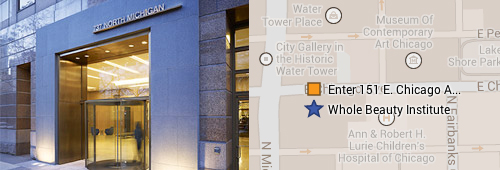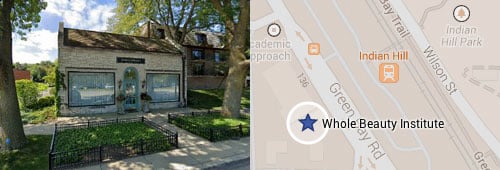Why Dr. John Q. Cook Is the Right Breast Surgeon for You
Dr. Cook has performed over 1000 breast reduction surgeries.
Dr. Cook has lectured at national and international meetings about the structural technique, which he often applies to breast reduction. Regardless of technique, his goal is always to create a beautiful, natural shape.
We will perform an individualized evaluation and select the technique for you that is best suited for your goals and body shape.
One of the things that Dr. Cook loves about breast reduction surgery is that it restores balance, both artistic and physical, to the body.
Education and Credentials

Awards and Recognition

REAL PATIENT RESULTS
See the difference experience makes. View the full before & after photo gallery of Dr. Cook and his team.
Breast Reduction
Address Discomfort and Get the Look You Want by Reducing Heavy Breasts in Chicago and Winnetka
Patients with disproportionately large breasts often experience pain, discomfort, and embarrassment. Over time, the physical mechanics of the back, neck, and shoulders are compromised. Breast reduction at the Chicago area’s Whole Beauty® Institute is a wonderful procedure because it offers patients a double benefit.
First, there is an artistic benefit. When a woman’s breasts are restored to a proper position and brought into harmony with the rest of her body, she will experience the pleasure of her own physical beauty.
Second, there can be remarkable physical benefits from breast reduction. Dr. John Q. Cook has performed breast reduction surgery for more than 1,000 patients, yet he is still amazed by the positive changes it produces: a reduction in or even full relief from pain in the neck and back due to heavy breasts, improvement in posture and body mechanics, and an increase in motivation for healthy nutrition and exercise.
The Main Goals of Breast Reduction Surgery
When a patient comes to Dr. Cook to discuss breast reduction, the two spend considerable time discussing her specific goals and reasons for the wanting the surgery. The reasons most women choose breast reductions surgey typically falls under the desire to acheive six main goals: size, position, shape, balance, areola postition, and screenings.
Goal 1: Reduce Breast Size
Breast reduction is about more than just breast size, but size is an important consideration for all patients considering the surgery. In fact, size is often the only consideration that comes to mind for many patients at the start of their breast reduction consultation—but as the discussion proceeds, patients often realize that they have other goals for the surgery. How do we determine breast size?
One simple starting point is for the patient to specify a particular bra cup size. This is a good beginning, but it is more confusing than it used to be due to the marketing strategy of several bra makers: What used to be a “C” cup is now marketed as a “D.” Dr. Cook can often find before and after pictures of patients with a similar body type to the patient considering surgery, then look at the results obtained to see if it is similar to what the patient desires.
The consultation may also need to include discussion of the possible effect of lifestyle changes that come about as a result of breast reduction surgery. Some of the patients who come in for breast reduction exercise less than they used to, because of discomfort or embarrassment. The majority of these patients will have lost weight when Dr. Cook sees them again at their six-month visit.
Also, there are two main types of breast structure: fatty and glandular. This is an important distinction that Dr. Cook will make during the consultation. Breasts with a fatty structure will lose significant volume if a person loses weight, while breasts with a firmer glandular structure will lose much less volume.
Goal 2: Improved Breast Position
One of the best things that Dr. Cook feels he can do for a breast reduction patient is to bring her breasts to a higher position on the chest. This changes the center of gravity and provides better body mechanics. It also improves the artistic balance of the body.
Dr. Cook understands different patients have different goals in terms of the amount of lifting they desire. Different breast reduction techniques produce differing degrees of lift, especially over the long term.
Goal 3: Breast Shape and Structure
For some patients, there can be considerable widening of the breast and an overall spreading out of the breast structure over time. If the patient desires correction of these issues, the structural breast reduction technique will probably be the most effective in achieving her goals.
If a patient has photographs of her breasts—even in a swimsuit—from a time when she was pleased with their shape and appearance, this is helpful, since it helps Dr. Cook to visualize her goals.
Goal 4: Balance Between the Breasts
Dr. Cook has also often noticed that patients with breast asymmetry can be quite self-conscious. The asymmetry may just be a matter of breast size, but there can often be significant differences in breast shape as well. A careful dimensional planning of the surgery will help to achieve her goals.
As part of the planning for the breast reduction surgery, Dr. Cook and the patient will review her breasts in the mirror, as well as review pictures taken at the office to help refine and determine the goals in terms of breast shape.
Goal 5: Position and Shape of the Areola and Nipple
With breast reduction surgery, it is possible to make changes in the nipple and the areola (the colored zone that surrounds the nipple). Dr. Cook will discuss four aspects of the nipple and areola during your consultation: level, size, axis, and border.
Level
The level of the nipple and areola is adjusted during breast reduction surgery, so that it is brought into proper visual harmony with the rest of the breast. Most large breasts eventually drift downward due to motion and gravity, and this carries the nipple along with it, so that the nipple sits at a lower-than-desirable level. Different patients have different concepts of ideal nipple position, so Dr. Cook will discuss your preferences with you during your consultation. As much as is technically possible, these preferences will be incorporated into the plan for your breast reduction surgery.
Size
Many patients also desire an adjustment of their areolar size as part of breast reduction surgery. Very often, the areola is stretched to a larger-than-desirable size when breasts are significantly enlarged—especially if the patient has gone through the cycle of pregnancy and breastfeeding. When Dr. Cook creates an areola that is of proper size relative to the new reduced breast, the visual harmony is increased.
Axis
Every breast has an axis—or, in other words, a direction in which it points. This axis is determined by the basic breast structure and by the position of the nipple and areola. Often, as very large breasts stretch and settle, the areola will drift so that it points downward and outward. Less commonly, the nipple may point in an inward direction. With careful planning, it is possible to design a surgical approach that will allow Dr. Cook to bring the areola into a position that determines a pleasing breast axis.
Boarder
It is also important to consider the areolar border in the planning of breast reduction surgery. Some areolae have sharply defined borders, while the border may be less distinct on others. As a general rule, breast reduction surgery produces an areola that has a clearly defined border.
Goal 6: Proper Breast Screening
When breasts get beyond a certain size and density, it is very difficult to adequately screen for breast cancer—for instance, detecting a breast lump during a physical exam, especially if that lump is relatively deep in the breast structure. Mammograms also become less accurate, particularly if the breast structure is dense. This leads to a more extensive mammogram with extra views and compression techniques that may be uncomfortable.
If a patient has a family pattern of breast cancer, the difficulty in evaluating the breasts can be a source of anxiety. At Dr. Cook’s hospital, Rush University Medical Center, which is a major center for the treatment of breast cancer, he has had many patients referred to him by the breast oncologists because the patient has a family history of breast cancer and large, dense breasts that are difficult to evaluate. For these patients, breast reduction surgery has benefits that go beyond the artistic and physical and include an improved ability to screen for early breast cancer.
Regardless of the motivation for surgery, patients frequently tell us that breast reduction surgery provides them with a sense of well-being, relief from the physical consequences of heavy and settled breasts, and increased confidence.
Prior to breast reduction surgery, some patients use words such as “matronly” or “heavyset” to describe the way enlarged breasts affect their body image. Once their breasts are brought into proper balance with the body, these same patients use more positive words to describe their body image.
This desirable feedback cycle is similar to that experienced by patients with other forms of aesthetic surgery when their appearance is brought into balance with their internal sense of form.
Pain and the Physical Consequences of Heavy and Settled Breasts
Patients with disproportionately large breasts experience symptoms that tend to become more severe with the passage of time. The size and weight of enlarged breasts will overwhelm the natural internal support of the breast structure and cause the breasts to settle to an increasingly low position on the body. This will have predictable consequences on body mechanics.
Poor Center of Balance
Heavy, low-riding breasts actually change the body’s center of balance. Many types of exercise—including dance, tennis, and running—are negatively affected when the center of balance is lowered. Patients try to compensate for this by purchasing harness-like bras in order to lift the breast to a better position. Unfortunately, this strategy has its own set of negative consequences. The bras dig in to the shoulders and actually produce grooves over time that can become quite sore. Also, the shoulders are pulled forward. This puts excess pressure on the upper back and neck and leads to pain in these areas. The spine takes on an exaggerated lordosis (curvature) in an attempt to compensate for all of the heaviness in the front of the chest. Over time, this curvature produces lower back pain.
If this description is familiar to your own experience, you will probably experience significant improvement in your physical comfort after breast reduction surgery. Of course, there can be other causes to back pain—such as arthritis and injury—but even if these exist, corrective breast surgery, including breast reduction, can at least make the symptoms less frequent and less severe.
Poor Posture
Unfortunately, in our culture, women with large breasts are often teased during high school and college. This can set up a vicious cycle in which a woman may avoid situations where her breasts may be noticed, frequently including many types of exercise. This also may lead to a hunched posture in an effort to camouflage the breasts and, in some people, even weight gain to balance larger breasts with a heavy lower body.
It’s important to note that not all patients who desire breast reduction do so because of physical symptoms. Approximately one third of our breast reduction patients come to us for reasons of personal aesthetics. For these patients, it is often a matter of bringing the breasts into balance with the contours of the rest of the body. For some, there is a preference for a slender, athletic physique.
Raw and Irritated Skin
Patients with very heavy breasts may also find that the skin under their breasts can become raw and irritated, especially during the warmer months.
Asymmetric Breast Hypertrophy
The consequences of heavy breasts can be even more severe for patients who have asymmetric breast hypertrophy (overgrowth). This can be understood if you think of the following common experience: It is easier to carry a pair of fairly heavy suitcases, one in each hand, than to carry a heavy suitcase in one hand and a light suitcase in the other. People who carry suitcases of two different weights almost immediately experience muscle spasm in the back. This is often the physical reality of women with massive breast enlargement.
Post-Pregnancy Issues
These physical consequences of breast enlargement are worsened if a woman has experienced a pregnancy that causes a widening of the gap between the rectus (sit up) muscles in the front of the abdomen. In these cases, there are two sets of forces working against efficient back dynamics. For many of these patients, the combination of breast reduction and abdominoplasty can produce a wonderful benefit.
Different Surgical Techniques Used for Breast Reduction
We offer our patients several different types of breast reduction surgery. This allows for an individualized approach that takes into account your goals and preferences.
Each breast reduction procedure starts with a consultation at the Whole Beauty® Institute. The consult is designed to help you to clarify your goals and instruct you on how to prepare for breast reduction surgery. Dr. Cook and his team perform a detailed dimensional analysis of your breasts, so that they can select the technique that will best meet your needs. They can further help you to visualize the result with their portfolio of before and after pictures patients have generously made available for sharing during the consultation process.
During the breast analysis, the team will obtain pictures of your breasts, which are available for viewing right away in the consultation room. When a patient looks at a picture of herself, a different type of information is provided from when she looks in the mirror. Dr. Cook is able to sketch on the touchscreen and provide a sense of the changes that will come about with breast reduction surgery. This is the time to refine the analysis of the goals for the surgery and address issues of breast axis, breast shape, and position of the nipple.
The experience Dr. Cook has obtained from performing more than 1,000 breast reduction surgeries with different techniques helps him to guide each patient during her consultation. The breast reduction options to choose from include:
Structural Breast Reduction
For patients with a moderate degree of breast enlargement, the structural breast reduction technique offers three key advantages: a restructuring of breast volume to fill out the upper portion of the breast, deep structural anchoring of breast tissue to reduce the stretching out that occurs after skin level breast lifts, and a limited scar.
Structural Reduction Before and After
Hover over image to view results. Warning, the images contains nudity.
Structural breast reduction and mastopexy. Before and after 5 months.
All properly performed breast reductions also involve a breast lift—otherwise the result would be a smaller sagging breast. For some breast reduction techniques, the lifting part of the operation simply involves a tightening of the skin by removing a section of excess and sewing the skin back together. This can create new cosmetic problems, including settling of the lower breast structure in a process known as “bottoming out” and a hollowing out of the upper portions of the breast. The development of a structural technique has been one of Dr. Cook’s major breast surgery projects in recent years, addressing some of the limitations of other breast reduction techniques.
Structural Reduction Before and After
Hover over image to view results. Warning, the images contains nudity.
Structural breast reduction. Removed 440g from right breast and 365g from left breast. Before and after 9 months.
With this technique, Dr. Cook shifts a portion of the breast structure to fill out the upper pole of the breast. This is important because a lack of fullness in the upper portion of the breast is one of the most common problems that breast reduction patients encounter over the long term. The upper portion of the breast may look hollow, even after the surgery has been carried out. The structural technique has two benefits: It provides a pleasing fullness in the upper breast and is part of the deep structural anchoring that holds the breast in its proper position. The structural breast reduction technique also avoids the scars along the inner portion of the fold under the breast, which is the area most likely to be exposed in swimsuits and evening gowns.
Structural Reduction Before and After
Hover over image to view results. Warning, the images contains nudity.
Structural breast reduction. Before and after 7 months.
With many enlarged breasts, the structure also becomes spread out and lacks a good tone. With the structural technique, it is possible to tighten the base of the breast and firm up the breast structure as part of the breast reduction process.
Dr. Cook makes use of the structural breast reduction technique for a wide variety of breast reductions, but while it has several advantages, it is not the solution for all patients who want to reduce the volume of their breasts. In patients with massive breast enlargement or who have a great degree of extra skin in the lower portions of the breast, he makes use of the classic reduction pattern.
Classical Breast Reduction
Like the structural breast reduction, the classical breast reduction technique produces a scar around the areola and from the areola to the fold under the breast. There is also a scar that runs along the fold under the breast (the inframammary fold, in the language of plastic surgery). This forms a pattern that resembles an anchor, so some people refer to this as the anchor technique. The technique has produced many wonderful results and happy patients. In fact, the classical approach is the most commonly performed breast reduction technique in the United States.
Classical Reduction Before and After
Hover over image to view results. Warning, the images contains nudity.
Classical breast reduction. Before and after 7 months.
Often, very large breasts that have a considerable amount of settling also have significant excess skin in the lower curvature of the breast, which may not respond ideally to more limited scar techniques. The classical breast reduction technique allows for a precise sculpting of excess breast tissue from the areas of greatest concern to the patient. It is also particularly appropriate for patients with asymmetric hypertrophy, in which one breast is considerably larger than the other.
Classical Reduction Before and After
Hover over image to view results. Warning, the images contains nudity.
Classical breast reduction. Before and after 10 months.
For some breast reduction patients, the scars from the surgery are a drawback, especially along the fold at the inner portion of the breast. This is also a technique that essentially relies on the skin to hold the breast in its new position. In general, skin tends to stretch over time, and the breast tends to settle.
Although the scars from classical and structural breast reduction may look the same, not all breast reductions with the classic scar pattern treat the breast structure the same way. Some surgeons carry out breast reduction by removing wedges that include the skin and underlying breast tissue and then bringing the edges back together by sewing the skin. Many surgeons regard this process as the fastest method of reduction. However, in Dr. Cook’s opinion, this approach is not well-suited to all breasts. For many breasts, the wedge approach produces a breast that has a boxy appearance. When Dr. Cook performs a classic breast reduction, he separates the two key variables of the surgery: skin reduction and breast structure reduction. This gives him more control over breast shape.
Classical Reduction Before and After
Hover over image to view results. Warning, the images contains nudity.
Classical breast reduction. Before and after 1 year.
Many, but not all, patients who come to the Whole Beauty® Institute for breast reduction surgery can take advantage of the structural reduction technique. For this reason, Dr. Cook now performs fewer classic breast reduction surgeries than he did in the past.
There are still patients for whom the classic reduction technique is the best option. Patients who are massively enlarged or who have a great degree of stretching out of the skin of the lower portions of the breast are often best served by a variation of the classic breast reduction technique.
Vertical Breast Reduction
This technique was pioneered by surgeons in Europe and Brazil and is becoming more popular in the United States. With this breast reduction strategy, the patient has scars that follow the border of the areola and extend from the bottom of the areola to the bottom of the breast. There is a gathering of skin at the bottom that can be addressed in several ways.
In Dr. Cook’s practice, the vertical reduction has been replaced by the structural breast reduction technique, which has several important advantages over vertical reduction techniques. The main advantage is the limited scar when compared to classic breast reduction surgery. The main disadvantages are that it sometimes produces a strange breast shape until the breasts “settle in” and that there can be a “puckering” where the scar ends at the bottom edge of the breast.
Periareolar Breast Reduction
This technique finds a greater range of applications for mastopexy or pure breast lift procedures than for breast reduction. The only scar is one that follows the areolar border, making it quite popular with patients.
This technique can be helpful for patients who desire a modest degree of reduction and do not require a dramatic lift. Most patients who choose this operation are interested in breast reduction for artistic reasons rather than a major reduction in size.
During this breast reduction operation, Dr. Cook makes an incision around the border of the areola, reduces the excess breast structure, and removes an outer circle of skin that surrounds the areola. When he brings the edge of the outer circle to the border of the areola, this tightens the skin of the breast and provides a modest lift.
Breast Reduction Surgery Combined with Implants
At first glance, breast reduction with implants might seem to be a contradiction—but there are some patients who benefit from a reduction of breast tissue combined with the placement of a breast implant. Particularly in patients who have lost significant weight, the breasts may be severely settled and completely emptied out in their upper portions. Even the most powerful techniques of breast reduction may leave these breasts with an undesirable hollowness in their upper portions. A properly placed saline or silicone gel implant can help to restore a pleasing balance to the breast form.
Frequently Asked Questions about Breast Reduction Surgery
What Causes Overly Large Breasts?
There are many factors that can cause the breasts to become disproportionately enlarged and prompt a woman to consider breast reduction. In some patients, there is a strong family pattern of breast enlargement. In other patients, cycles of weight gain and loss or the hormonal stimulus of pregnancy can lead to a lasting increase in breast size. Yet another group of patients will experience a significant gain in breast volume at the time of the menopause. There are also many patients who experience undesirable breast enlargement without any known pattern or cause.
What Is the Breast Reduction Procedure?
Breast reduction works well as outpatient surgery. Dr. Cook will carry out the surgery either at Rush University Medical Center or at a fully accredited outpatient surgical facility near the North Michigan Avenue office.
Depending on the breast reduction technique used, the surgery typically lasts from three to five hours. Most patients are able to leave the surgical facility in less than an hour after the procedure is completed. Patients from the Chicago metropolitan area usually choose to recover from breast reduction surgery at home. Patients from outof-state will recover at a fine hotel near the Whole Beauty® Institute office. The team can arrange to have one of the practice’s highly experienced caregivers stay with you for one or several nights.
What Does Breast Reduction Recovery Involve?
Dr. Cook makes use of a long-acting local anesthetic, so most patients can control their pain with standard prescription medications. The breasts are protected by a fluffy dressing that is covered by a gentle stretch bra.
Breast reduction patients typically come for their first post-operative visit three or four days after their surgery. At that time, the dressing is removed, and the patient is fitted with a gentle support bra. Most patients can return to normal light activity in less that a week after the procedure, but heavy lifting and vigorous exercise should be avoided for four to six weeks.
Patients with young children should make arrangements for help with childcare for the early weeks after their breast reduction surgery.
Can Men Have Breast Reduction Surgery?
Men can develop excess fatty or glandular tissue, creating enlarged breasts that cause their chest to have less masculine contours. This condition, known as gynecomastia, is commonly associated with hormone fluctuations and can be addressed with a number of surgical breast reduction techniques designed specifically for men.
Why Many Doctors Don’t Understand the Consequences of Heavy Breasts
Many otherwise well-intentioned physicians are woefully unaware of the physical effects caused by markedly enlarged breasts. At my Chicago center, I have seen many patients with massively enlarged breasts who visit their physicians with complaints of neck and back pain and are told they just need to lose some weight or do some neck exercises. Some of these patients suffer for decades before they finally encounter a friend who shares her experience with breast reduction surgery and puts them on the right path.
Every year, I perform breast reduction surgery on patients who have complained for years of significant pain in their neck and shoulders.
Their doctors have dutifully referred them to orthopedic specialists, physical therapists, and chiropractors, and have ordered expensive tests such as MRIs—all to no long-term benefit. The reason for this is simple: The root cause of the pain is the postural imbalance produced by heavy, settled breasts.
In general, female physicians are more likely to understand the consequences of heavy breasts, probably because they have friends with heavy breasts who have shared their experiences.
The lack of understanding on the part of many plastic surgeons may also stem from the way doctors are educated. We diligently study one area of the body or one organ system at a time, but less attention is given to the interplay between the different parts of the body.
Even in the first few days after breast reduction surgery, patients frequently experience a significant increase in physical comfort. No longer are the heavy, settled breasts pulling the shoulders, neck, and back out of alignment. As time progresses, patients experience further improvements. For many patients, the shoulders have settled into a resting position of misalignment; we will guide these patients with a series of gentle exercises that can help to restore normal shoulder mechanics.
One further benefit of breast reduction surgery is that it frees the patient to explore forms of exercise that she may not have been comfortable with for years. With increased exercise comes weight loss, which further promotes good health and wellbeing.
I always suggest to my patients that when they experience a wonderful relief of their physical symptoms from breast reduction surgery, it is helpful for them to share the good news with their primary care doctors, so that there will be a gradual education of physicians about the benefits of the surgery.
Breast Reduction Surgery for Positive Changes in Health and Well-Being
The benefits of plastic surgery very often extend beyond an improvement in a person’s appearance. At its best, plastic surgery sets up a positive feedback cycle that produces benefits in both health and well-being. This is particularly true of breast reduction surgery.
For patients with very heavy breasts, there can be a sense of opening up of possibilities after recovery from surgery. It is no longer necessary to wear heavy, harness-like bras that are uncomfortable and restricting.
Body mechanics change for the better when the breasts are balanced and brought to a proper location on the body. The center of gravity changes, which allows for increased mobility and the chance to participate in dance, sports, yoga, and other activities that were previously quite difficult.
Over time, a breast reduction patient’s shoulders will come back from their forward hunch, and this takes pressure off of the neck and upper back. Even the deep shoulder furrows from years of heavy bras will improve over time.
Many of Dr. Cook’s breast reduction patients tell him that they experience an increase in self-confidence and sense of freedom after surgery. This often leads to a greater focus on healthy habits of nutrition and exercise. Very often at the six-month visit, patients find that they have better posture, increased comfort, and a better level of fitness than before the surgery.

If you would like to learn more about breast reduction, we encourage you to send a message online to set up a consultation, or call today at 312-751-2112 or 847-446-7562.
Request a consult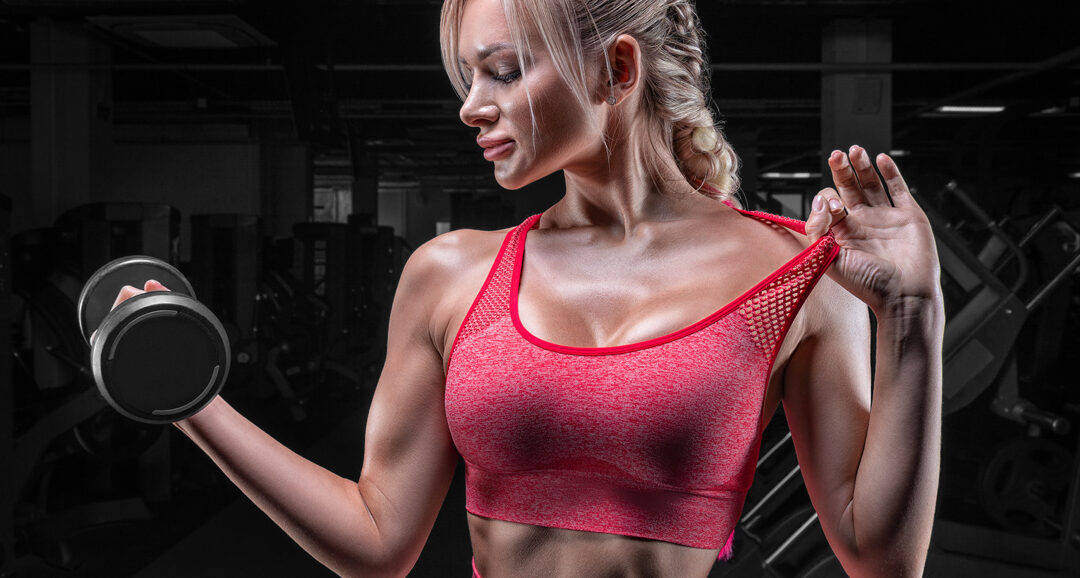
Breast Reduction in Athletes
Powerful benefits can come to women with significant but not massive breast enlargement who are very athletic. In the last few years, breast reduction in athletes is a surgery I have performed in an increasing number done primarily to help women increase their athletic performance and enjoyment of physical activity.
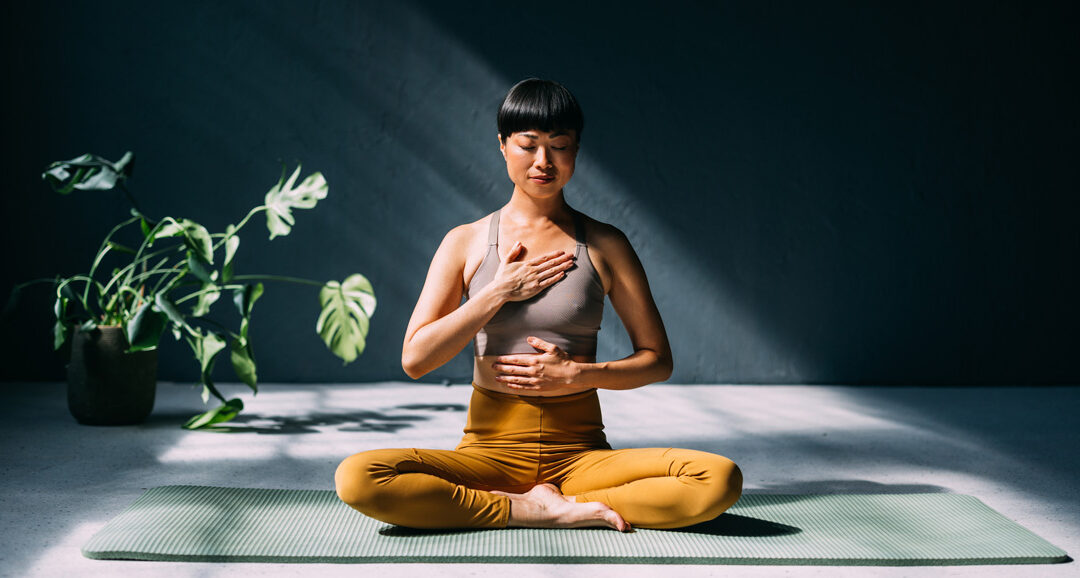
Yoga Benefits to Breast Reduction
Yoga benefits my breast reduction patients. Methods relieve neck pressure, improve balance and flexibility and breathing techniques aid in healing process.
Dr. Cook's Practice Blog
Explore our practice blog to learn more about non-surgical treatments and plastic surgery procedures available at The Whole Beauty® Institute. Get tips and advice, and discover new ways to improve your health and beauty.
Dr. Cook's HealthGems Blog
Dr. John Q. Cook shares his personal thoughts on well-being, quality of life, and more in HealthGems—from his decades of experience in the industry, studying and working with advanced technology and techniques.
Whole Beauty Skincare
SkinShopMD.com was created by Board-Certified plastic surgeon, Dr. John Q. Cook, as a trusted source for high quality, medical-grade skincare products to protect and rejuvenate your skin.
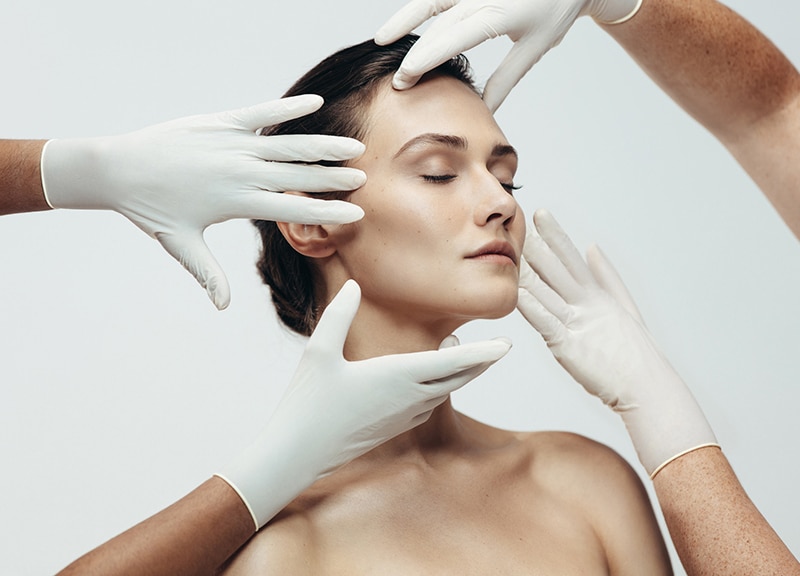
Educational Information
Get informed about cosmetic plastic surgery procedures and rejuvenating non-surgical treatments to help you make informed decisions about your desired treatment based on your aesthetic goals.
Testimonial and Practice Videos
Schedule a Consultation
Schedule a consultation with board-certified plastic surgeon, John Q. Cook, M.D., to learn more about plastic surgery solutions that may be right for you based on your aesthetic goals.
"*" indicates required fields
Our Office Locations
Our locations in the Gold Coast of Chicago and Winnetka in the North Shore reflect our commitment to convenient and discrete concierge-level service.
Chicago Office
737 North Michigan Ave., Suite 760 Chicago IL 60611 (312) 751-2112 Entrance at 151 E. Chicago Avenue
Winnetka Office
118 Green Bay Road Winnetka IL 60093 (847) 446-7562
Located directly across from Indian Hill Metra Station







